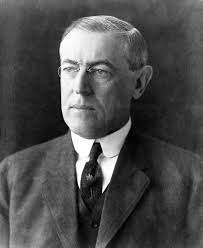The first decades of the twentieth century witnessed many sometimes-wrenching changes, and perhaps no decade was more profoundly revolutionary for the United States and the world than the 1910s. During this decade, American women finally gained the right to vote and American men went abroad to fight in the First World War. Meanwhile, the rapid pace of technological and industrial change only seemed to be accelerating. No single figure can capture this turbulent period, but any serious student of the age must come to terms with President Woodrow Wilson, the first southerner elected to the White House since the Civil War era, and arguably the strongest national executive since Lincoln. The Wilson administration spearheaded an avalanche of progressive domestic legislation and yet his presidency came to be defined by foreign affairs. Wilson struggled to define the American role in the world, first in places such as Mexico and Latin America, and then in the grave European conflict that became World War I. Wilson was a progressive and natural reformer, but he was ambivalent about women’s rights and found himself embroiled in a series of controversies as suffragists such as Alice Paul and her National Woman’s Party used the backdrop of US involvement in the First World War to press for universal voting rights. The clash of wills was immense, but ultimately Paul and her group, and the much larger National American Woman Suffrage Association (NAWSA), led by Carrie Chapman Catt, prevailed and secured passage of the proposed voting rights amendment from Congress in June 1919, and ratified by the states about a year later, in August 1920. That was also a period marked by a ferocious battle of the Treaty of Versailles, which had ended the First World War and established a framework for a new League of Nations. Wilson helped write that treaty and pressed vigorously for it, even at the cost of his own health, but ultimately, the US Senate rejected the treaty in 1919 and again in March 1920. The US never joined the League of Nations, but it was intimately involved in European and global affairs from that point forward.
Online Textbook Resources
World War I from Digital History (Mintz and McNeil)
Featured Videos


Leave a Reply